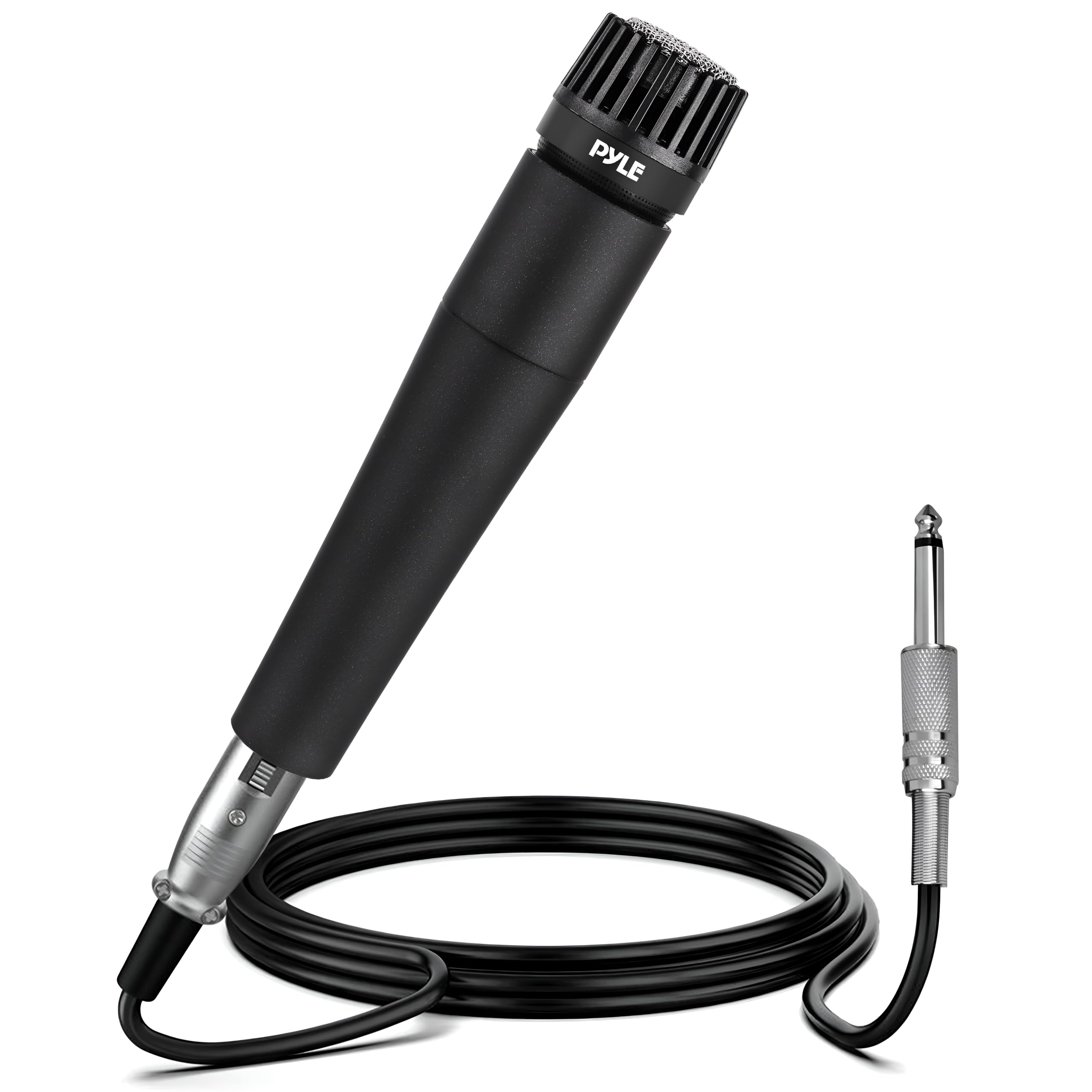Customer Services
Copyright © 2025 Desertcart Holdings Limited


🎙️ Own the Mic, Own the Moment
The PylePro Dynamic Handheld Microphone delivers professional-grade sound with a rugged zinc alloy body, unidirectional cardioid pickup for noise reduction, and a wide 50Hz-15kHz frequency response. Equipped with a built-in pop filter and low noise circuitry, it’s designed for flawless live performances and studio recordings. Comes ready with a 15-foot XLR cable for immediate pro connectivity.













| Material Type | Zinc Alloy Metal |
| Color | Black |
| Item Weight | 1.3 Pounds |
| Item Dimensions | 3.5 x 10 x 5 inches |
| Minimum Frequency | 50 Hz |
| Power Source | Corded Electric |
| Signal-to-Noise Ratio | 70 dB |
| Frequency Range | 0.05 khz - 15 khz |
| Frequency Response | 15 KHz |
| Number of Channels | 1 |
| Polar Pattern | Unidirectional |
| Impedance | 600 Ohm |
| Maximum Frequency | 15000 Hz |
| Connectivity Technology | Wired |
| Connector Type | XLR |
| Special Features | Musical Instrument |
| Compatible Devices | Amplifier |
Trustpilot
1 month ago
2 weeks ago